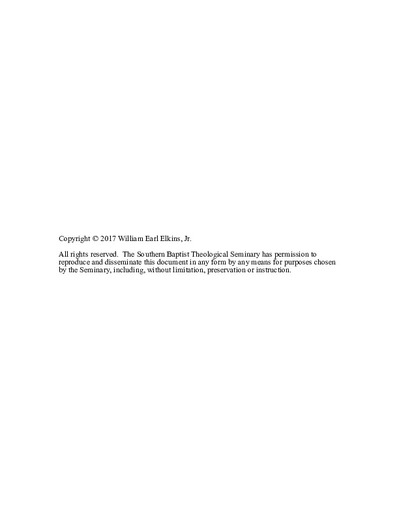On the Origin of Beauty and the Human Ability to Perceive It
Subject
AestheticsAbstract
On the Origin of Beauty and the
Human Ability to Perceive it
William Earl Elkins, Jr., Ph.D.
The Southern Baptist Theological Seminary, 2017
Chair: Dr. Mark T. Coppenger
This dissertation examines the explanatory power and scope of two different theories concerning the origin of beauty and the human aesthetic sense. Chapter 1 introduces the problem of beauty, the working thesis, and the methodological approached.
Chapter 2 examines several materialistic evolutionary explanations of the origin of beauty and of human aesthetic perception. It concludes with a critique of the various theories outlined.
Chapter 3 examines the possibility of a divine origin of beauty and the human aesthetic sense. Various biblical words and ideas are discussed, as well as several historical theological and philosophical concepts.
Chapter 4 considers the possibility that beauty functions as a sign that points to God. The discussion includes certain philosophers and theologians that developed, in various degrees, a divine semiotic understanding of beauty. In the last section, the burgeoning field of Biosemiotics is examined and critiqued.
Chapter 5 discusses the various types of beauty found in the world through sight, sound, and ideas, and how the mind recognizes these various types. The purpose of this section is to show that beauty is not just a peripheral aspect of the universe, but woven into the very fabric of reality.
Chapter 6 concludes by summarizing the arguments and showing that the best explanation for the origin of beauty in the world and of the human perception of beauty is biblical creation. It also concludes that beauty is an important signature of God, as well as a gracious gift given to humanity by a glorious and loving Creator.

